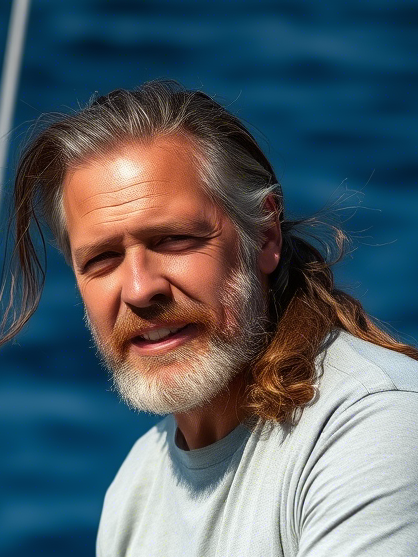
Frank, 54, is a former German software developer with a practical demeanor and a signature ponytail. In 2017, he fled his corporate life for Leros, Greece, buying a rusty sailboat—a symbol of freedom that mirrored his inner fractures. Pragmatic yet poetic, he repairs boats and journals during lockdowns, surrounded by eccentrics, refugees, and bureaucratic absurdity. Cynical yet curious, he avoids emotional entanglements (“women are off the table”) until Leila, an Iranian musician, breaches his walls. A flawed anti-hero oscillating between cheap beer and vulnerability, Frank embodies the search for truth in a world that’s neither paradise nor hell.

Leila, 35, is an Iranian musician and refugee with haunted almond eyes and waist-length chestnut hair that frames her fragile yet defiant presence. A virtuoso of the ney flute, her melodies carry the weight of silenced protests—in Tehran, she performed clandestinely until arrested for drinking alcohol, fleeing before facing 90 lashes. On Leros, she’s trapped in PIKPA Camp, her artistry suffocated by survival: a „pile of misery“ to outsiders, but beneath, a fighter trained in karate, her hands equally adept at composing or combat. She bonds with Frank over shared exile, her flirtations masking desperation for asylum. Her voice, raw and untamed, becomes the film’s soul—a cry against erasure.
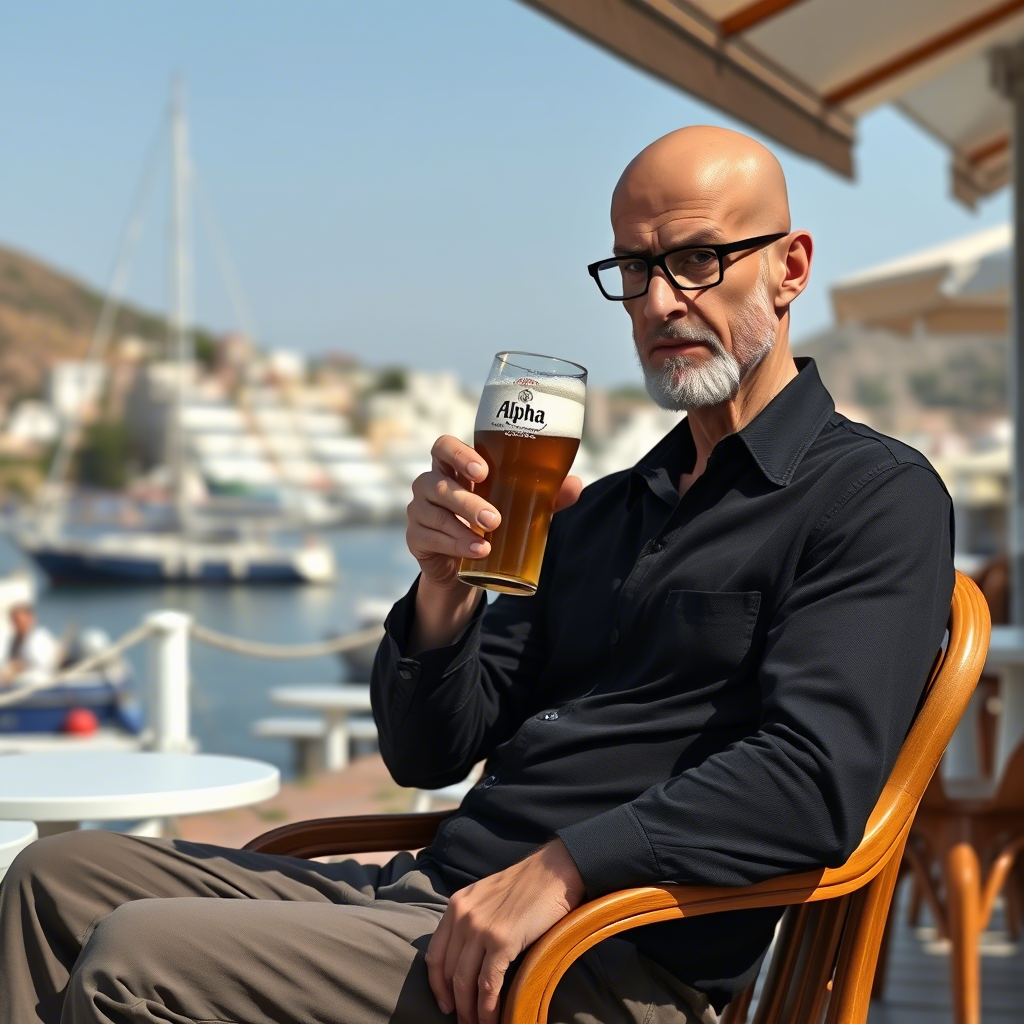
Raphael, 60, is a charismatic Belgian ex-millionaire with a shaved head, sharp glasses, and a self-destructive charm that masks his decay. Once wealthy in the gas trade, he lost everything to bankruptcy and his model wife’s rejection. Now marooned on Leros, he clings to disheveled jeans and Alpha Beer like lifelines. His flawless English, laced with a darkly rolled “R,” weaponizes wit against cops and inner demons. Despite broken ribs and mounting debts, he plays the philosopher-protector of refugees, his grin betraying a truth: he loathes himself more than the world ever could.
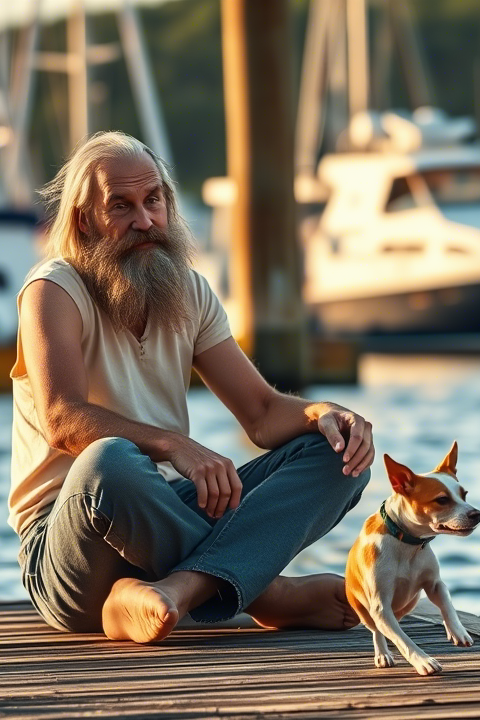
Ilias, 52, is a Greek anarchist with a shaggy beard and long gray hair framing his alcohol-reddened nose. A former junkie turned ragged philosopher, he hides a razor-sharp mind behind torn clothes – a walking history book quoting between beer bottles and anarchist manifestos. Despite his disheveled appearance, he fiercely protects refugees at the PIKPA camp and his Jack Russell terrier, Morty, with brutal loyalty. His violent outburst (“I’ll kill you all!”) exposes a fractured rebel: part enraged arsonist, part lonely father figure in a world that long forgot him.
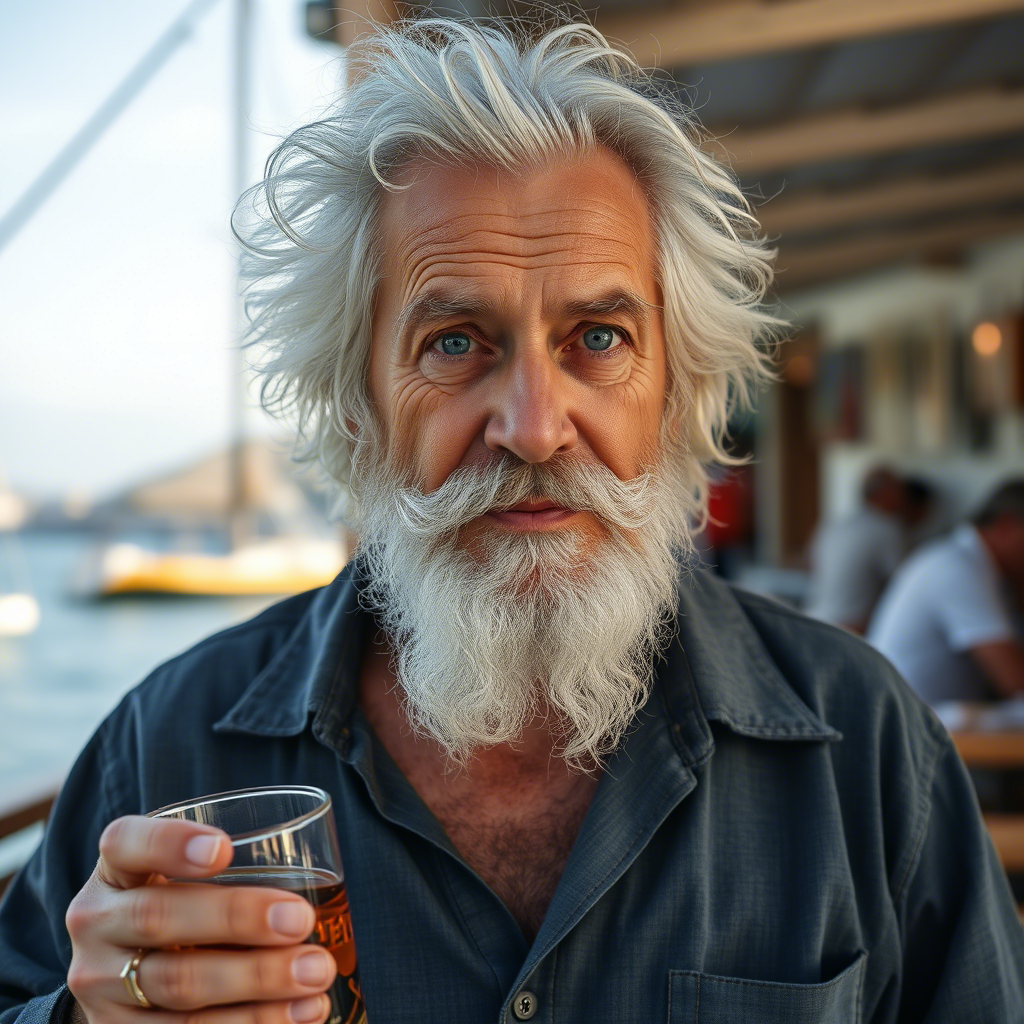
Stephan, 61, is a Belgian aristocrat with wild white hair and an anchor beard, resembling a disheveled Einstein of the Aegean. Inheriting a €10,000 monthly “allowance,” he naively bought a rotting 24-meter racing yacht from Israel, blind to its decay. On Leros, he rents a house, posing as a gentleman-adventurer while ignoring Raphael’s cries for help and fawning over Jean-Claude, an eccentric rally veteran. By skipping shipyard payments and spying on the group, he becomes the reviled traitor. His exit: fleeing to Belgium, leaving debts and a wrecked legacy—a tragicomic dreamer undone by reality and his own hubris.
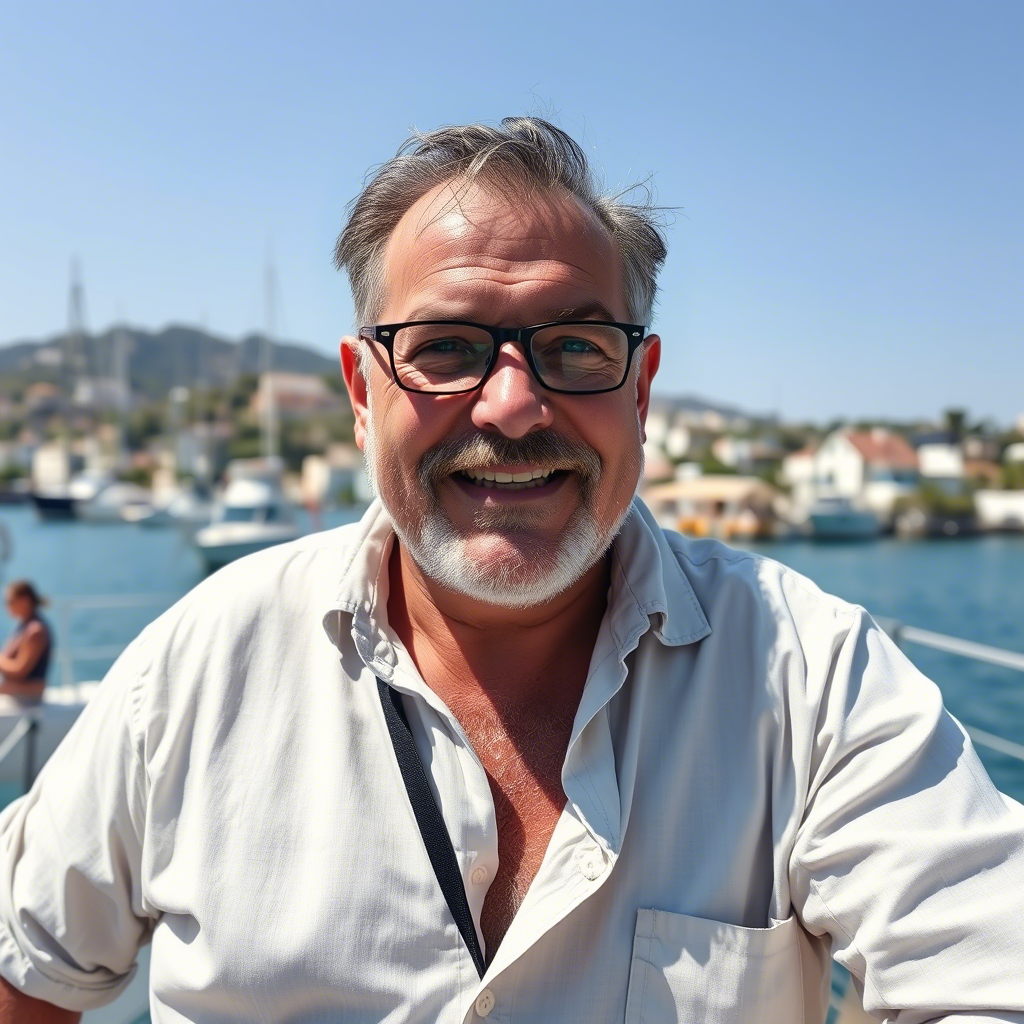
Yves, 54, is a Canadian real estate agent with an athletic build and disarming charm, known for coaxing smiles from women with smooth-tongued flattery. His sun-kissed face and casual style mask a shrewd mind that sniffs out deals even in a Greek shipyard’s rust. Though he lives by “every woman deserves a smile,” hidden scars surface during a BBQ when tears erupt as the crew discusses shattered dreams. A pendulum between flirtatious wit and quiet melancholy, he becomes the group’s emotional mirror—a man who laughs loudest in the darkest nights to silence the ache beneath.
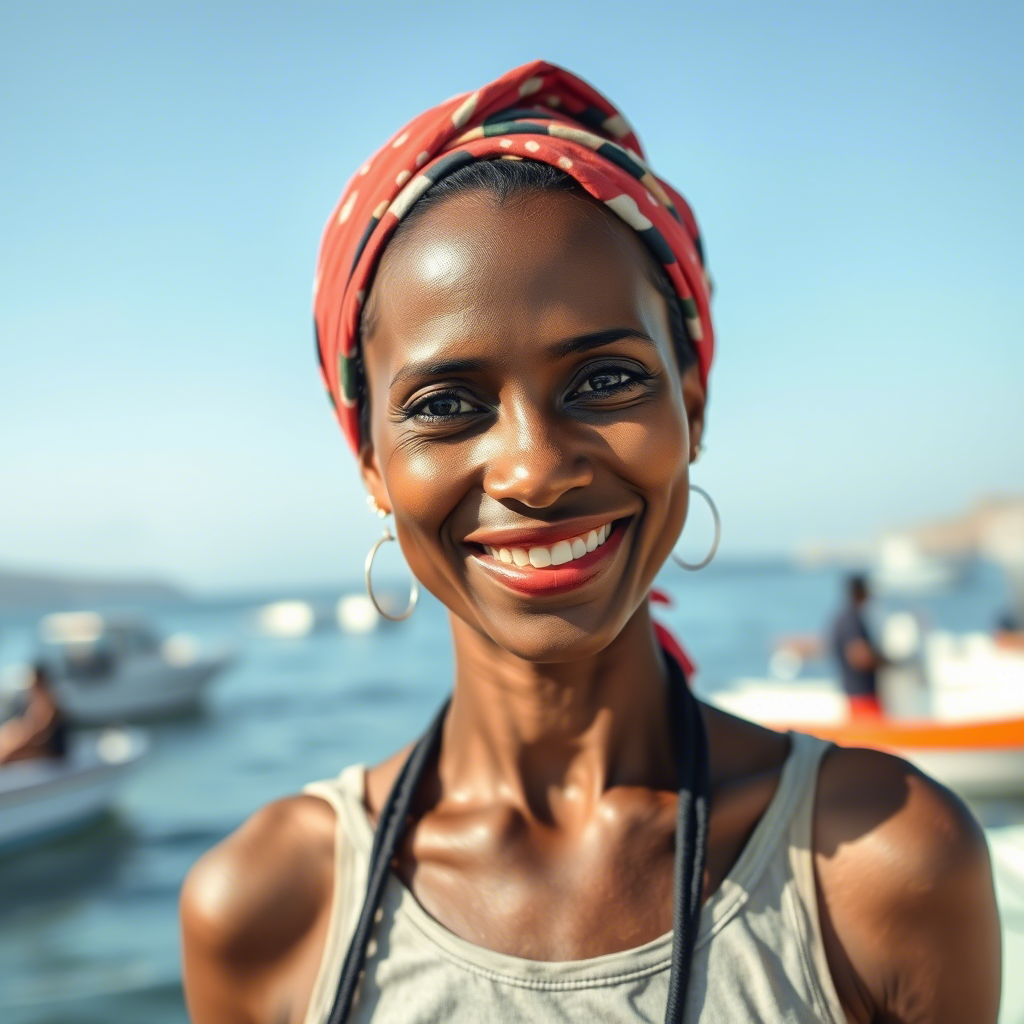
Somalia, 28, is a slender, silent refugee from Saudi Arabia whose dark eyes and headscarf-free presence shroud her in mystery. She shadows Leila like a ghost, but her loyalty is brittle: George suspects her of secretly colluding with PIKPA residents. Did she betray the group to buy protection? Her quiet demeanor—once a mark of trauma—now feels ominous. Even Leila grows wary when Somalia’s glances flicker toward their male pursuers at the party. George confronts her, trembling knife in hand: “You’re playing both sides!” But there’s no proof—only paranoia that fractures even the most desperate alliances.
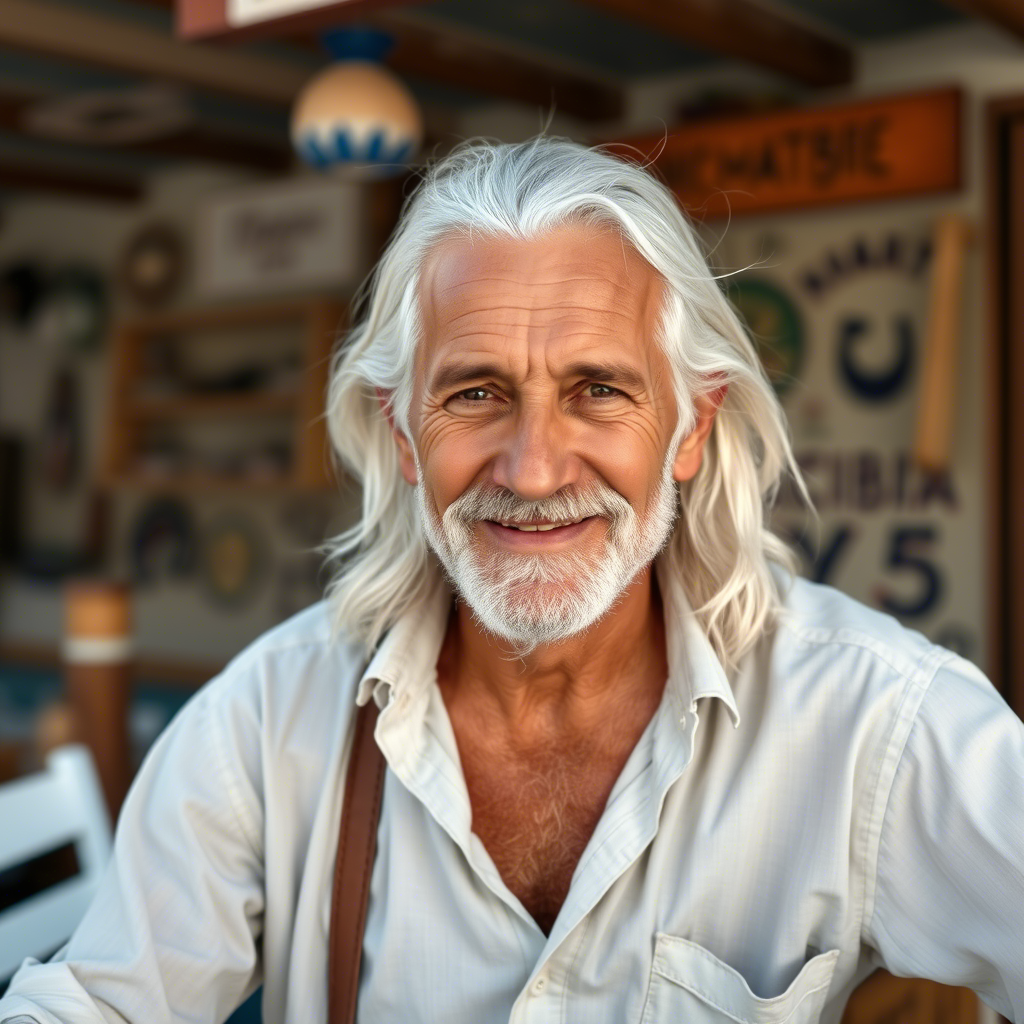
Fílippos, 52, is a charismatic Greek with flowing white hair and sun-leathered skin, a master of caulking—a shipwright wizard who saves wooden vessels from sinking with hammer and cotton. His hands, roughened by tar and saltwater, bear tales of storms survived. By day, he works in silence on his 18-meter wooden sailboat; by night, he philosophizes over ouzo about the “logic of the sea.” Though he initially scoffs at Frank’s German precision, he becomes a quiet ally when Frank repairs the rudder. His laughter, deep as the surf, anchors the fractured souls around him—a steadfast rock amidst the island’s swirling madness.
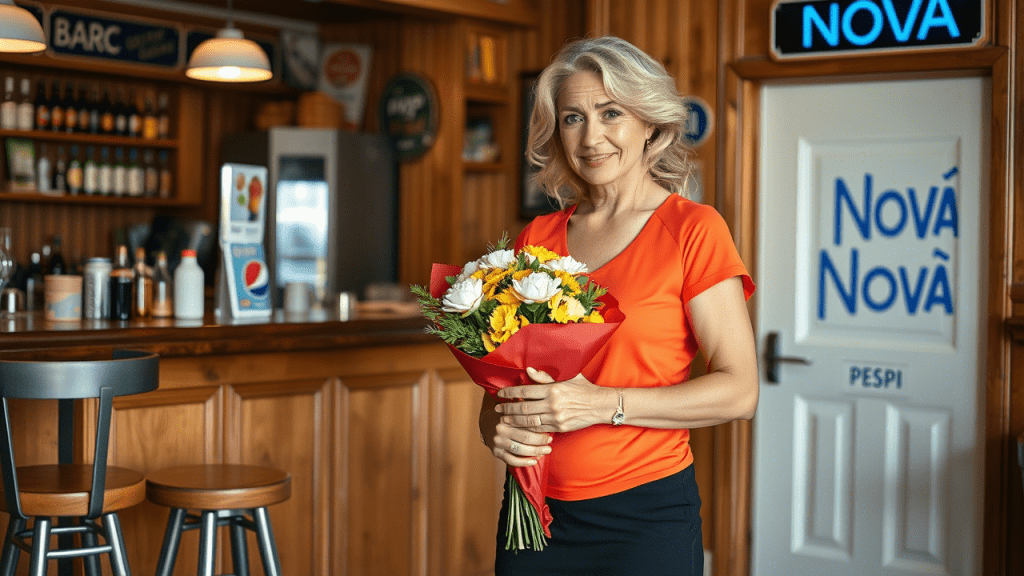
Popi, 50, is the owner of Café Morano—the beating heart of Leros. With her iconic orange sweater and short, dark curls, she embodies maternal strength and Greek hospitality. For 25 years, she’s opened at 6 a.m., serving coffee, ouzo, and tears in equal measure. Her smoky voice and smile, which persists even during lockdown, make her the confidante of the island’s rebels. Yet when she closes for the first time (“Corona…”), her hand trembles over a glass of ouzo—a crack in her granite facade. At night, shutters drawn, she becomes a solitary chronicler: collecting stories like espresso cups, wiping them clean, shelving them back.
Central Role: Popi is the story’s silent axis—her café where paradise and hell are renegotiated daily.
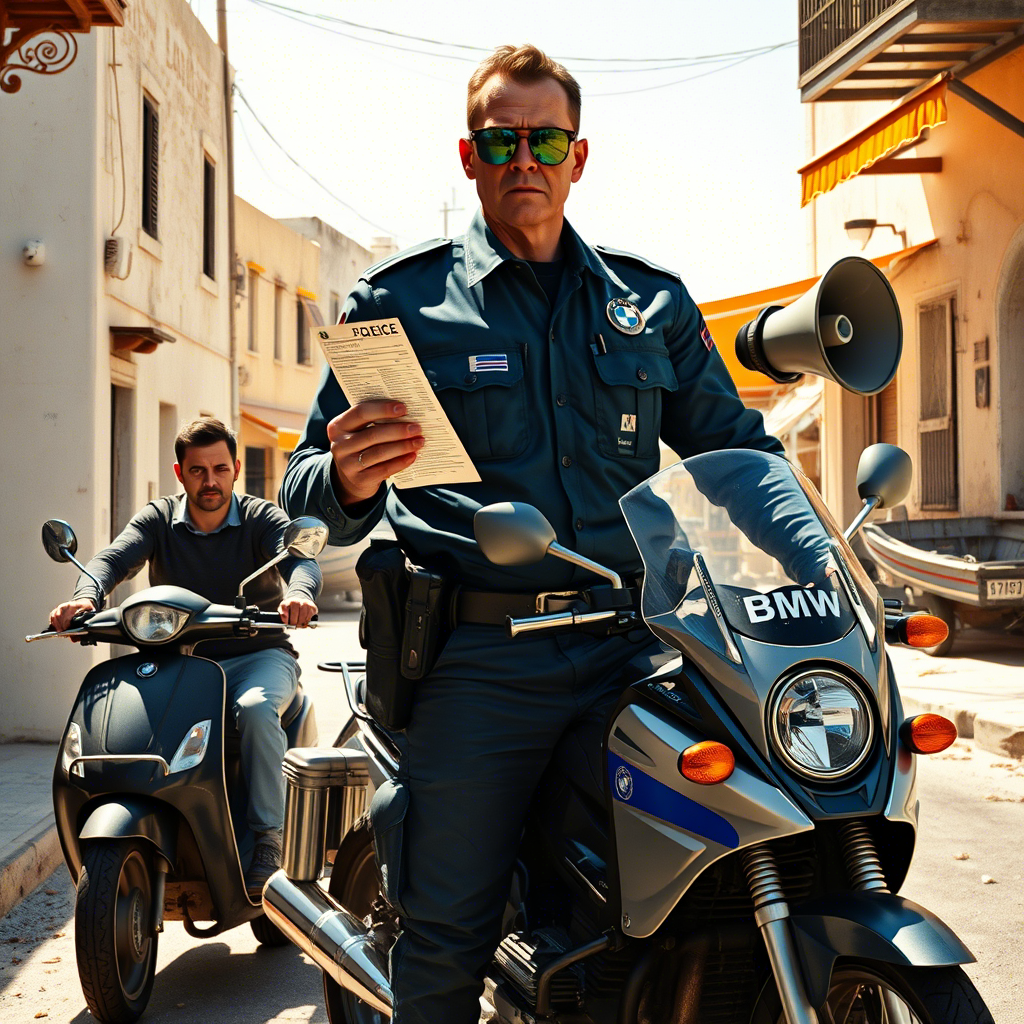
Robocop, a Greek police officer on Leros, embodies the dehumanizing rigidity of the COVID lockdown. With mirrored sunglasses and a rigid motorcycle uniform, he perches atop a BMW off-road bike, amplifying his authority. His robotic demeanor—stiff, unapproachable—transforms him into a walking bureaucracy machine. He enforces absurdly detailed penalties (€150 fines, license suspensions) for trivialities, barking orders (“NO PAPERS?”) while dismissing explanations. The BMW dominates the island’s roads, its engine roar heralding checkpoints as he scrutinizes permits and criminalizes breakfast baguettes. To Frank, he symbolizes state absurdity—an algorithm on two wheels, suffocating freedom. His nickname, an ironic nod to the film classic, underscores the surreal disconnect between humanity and system. 🔧🛵
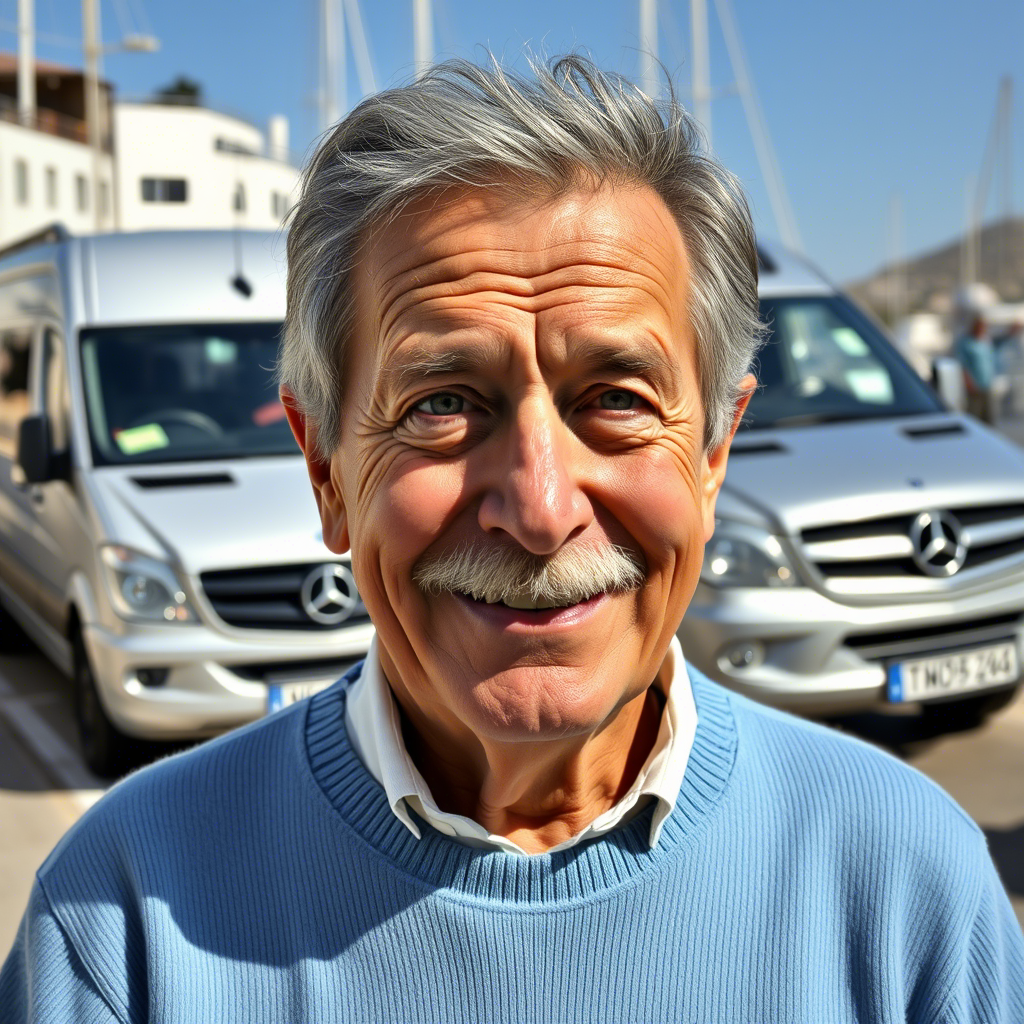
Jean-Claude, 75, is a shrewd veteran with a gray mustache, cunning eyes, and a sharp, pointed chin. A former Paris-Dakar Rally driver (1980, Citroën Traction Avant), he guards secrets like buried treasure. He lives aboard a rusting boat at the „Leros Marina“ shipyard, drives a silver Mercedes station wagon, and charms Stephan while secretly documenting the group’s activities for the shipyard to settle his own debts. His friendly facade masks a calculating spy who betrays their illegal parties and repairs. A survivalist straddling nostalgia and opportunism, he thrives in the island’s shadows—a fox basking in the Aegean sun. 🕵️♂️🚗
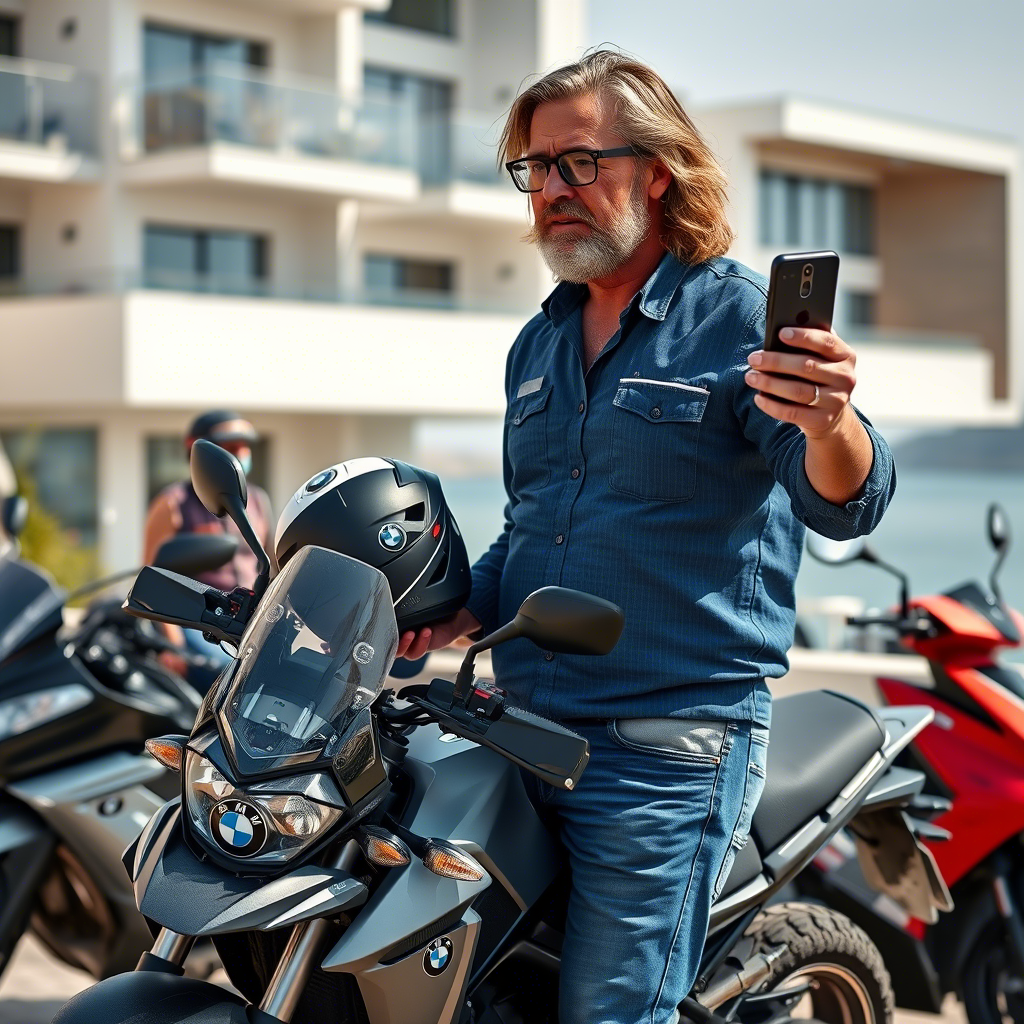
Carsten, a 50-year-old German businessman, looms at 6’5” with a stocky build, yet he’s no dominator—merely a silent observer. His long salt-and-pepper hair and analytical gaze behind glasses reveal a man who prefers analysis over action. He lives reclusively in a modern Leros apartment and rides a flashy BMW off-road bike, contrasting the group’s rickety scooters. At parties, he films dispassionately with his phone, as if documenting anthropological fieldwork. His unexpected intervention—driving Leila and Somalia home—ignites Frank’s rage, yet Carsten remains unmoved: an enigmatic outsider viewing the island through the lens of happenstance. 🏍️🕶️
